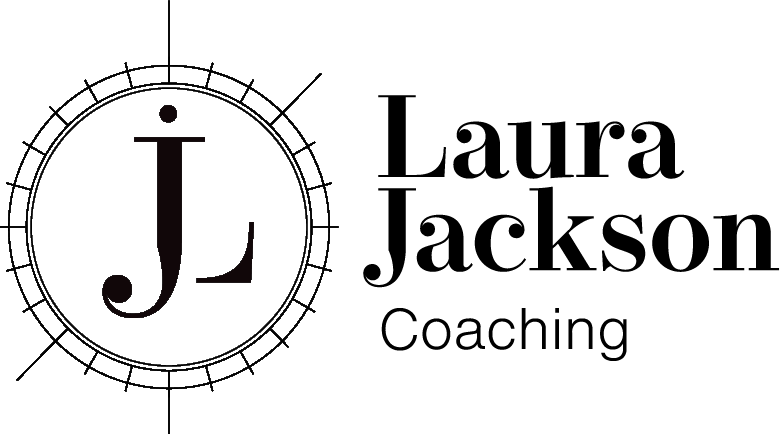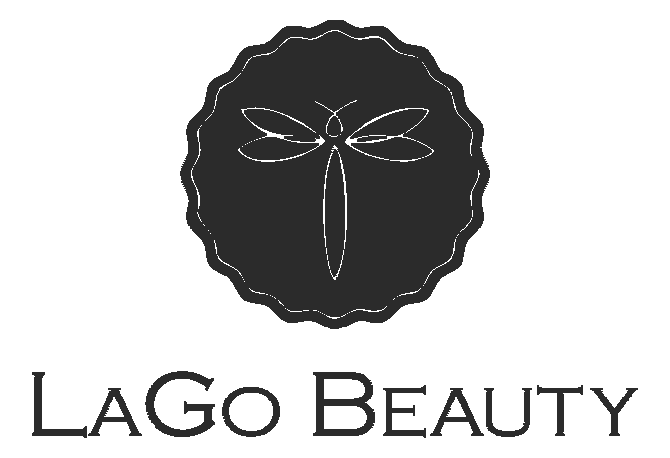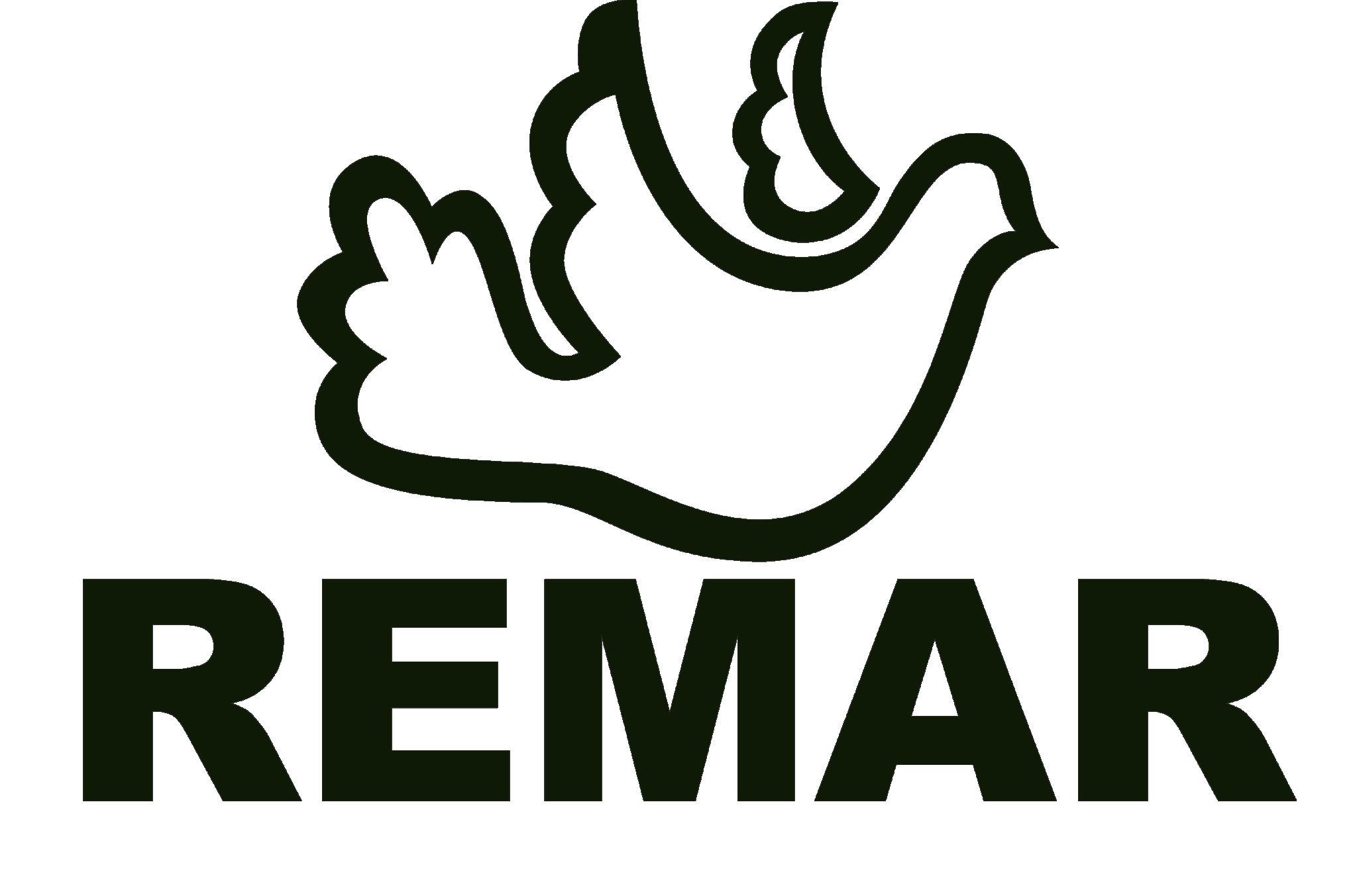SEO – Web design – Google Ads – Social media
Content marketing agency: Win customers with content that works
Increase your visibility with content that informs, builds trust and sells.
Individual marketing solutions
AI SEO
With AI, you get intelligent suggestions, data-based insights and automated SEO optimization.
Local SEO
We increase your local visibility, strengthen your presence on Google and gain new regular customers.
Onpage SEO
We optimize the structure, content and technology of your site for maximum performance and top rankings.
Google My Business
We optimize your profile on Google, increase your local reach and ensure more inquiries.
International SEO
We bring your website to the forefront worldwide with smart SEO and secure top rankings in all markets.
Recruiting
We combine SEO with recruiting to target top talent and strengthen your company in the long term.
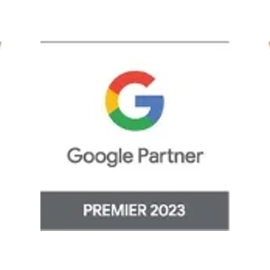

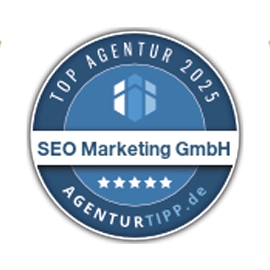
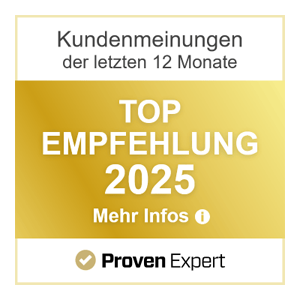
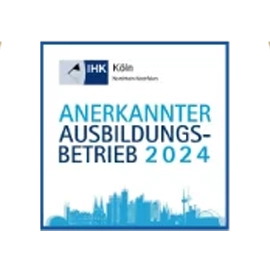
Why your content doesn’t win customers
Do you put a lot of time and effort into your content, but there are simply no inquiries? Many people know the problem: The blog isn’t found on Google, the social media posts don’t generate any engagement and the newsletter is barely opened. Many companies have the problem of regularly creating content that then fails to make an impact on any channel. This turns content creation into a frustrating task without measurable success, while competitors seem to attract potential customers effortlessly.
This is exactly where we come in as your content marketing agency. Successful marketing means replacing intrusive advertising with real added value – whether on Google, on Instagram or in your inbox. We develop a sustainable content marketing strategy that focuses on the problems and questions of your target group. This allows you to build trust and position your company as the first port of call for potential customers.






From an unknown provider to a sought-after expert
Today’s customers ignore traditional advertising. Instead, they actively search for solutions on Google, follow experts on social media and subscribe to helpful newsletters. The key to success is to deliver relevant information on each channel better and more comprehensibly than any other. When you answer your customers’ questions, you build a relationship long before a purchase is even made.
Our job is to create professional content. Through detailed target group analysis and keyword research, we find out which topics really move your target group. We then create high-quality content that is precisely tailored to the channel – from SEO-optimized articles and captivating videos to interactive social media posts. This turns your expertise into your strongest sales tool.
Good content is not a cost factor, but your growing business capital
Many see content creation as a mere line item in the marketing budget. We see it as one of the most profitable investments in online marketing. Unlike a paid ad that disappears as soon as you stop paying, good content works for you for years to come. A strong article continuously attracts visitors via Google, a viral video strengthens your brand on social media and a clever newsletter retains customers. It is a digital asset that becomes increasingly valuable over time.
Win customers who already trust you:
We create content that is so helpful that potential customers will approach you on their own. Instead of cold calling, you create a pull. If a prospective customer has found a solution to their problem through one of your articles, a social media post or a helpful video, they already see you as a competent partner – the perfect basis for a successful sales pitch.
Build authority and trust through valuable content:
Regularly published, high-quality content on all channels is the best proof of your expertise. We help you to establish yourself as a thought leader and reliable source of information in your industry. This reputation, built through marketing and SEO alike, not only strengthens your brand, but also justifies higher prices.
The perfect synergy of SEO and content:
The biggest mistake is to look at channels in isolation. What good is the best blog article (SEO) if it is not shared on social media? What good is a viral video if it doesn’t drive traffic to your website? Real strength comes when SEO and content go hand in hand. We develop content that contributes to search engine optimization (SEO) and at the same time serves as fodder for your social media channels, videos and newsletters. The strategic combination of marketing and SEO is crucial to building a broad, sustainable reach.
Analyze your website for free – more visibility now!
Have your website analyzed free of charge and discover optimization potential immediately. Get a quick SEO check with clear tips for better rankings, more visibility and more customers - free of charge, professionally and without obligation.
Our content process: strategic, systematic and to the point
Convincing content is not created by chance. They are the result of a clear and structured process that unites all disciplines.

Strategy & topic identification (The plan)
We start with an in-depth analysis of your goals and target group for all channels. Based on this, we develop a customized content marketing strategy. Using keyword research and social media analyses, we identify topics that are guaranteed to move your target group.

Research & creation (the implementation):
Our team of experts produces exactly the content you need. We don’t just deliver texts, but a complete package:
SEO content: (blog articles, encyclopedia, landing pages)
Social media content: (editorial plans, texts for posts & stories, concepts for reels, community management)
Video marketing (conception): (strategy, conception and scripts/speaker texts for YouTube & social videos)
Email marketing: (texts for newsletters, lead magnets and campaigns)
Audio marketing (conception): (conception and scripts for podcasts or audio features)


Optimization & Publication (Visibility):
Each piece of content is optimized for its specific channel. Texts for search engine optimization (SEO), scripts for ‘watch time’ and posts for maximum engagement. The close connection between SEO and content is just one part of this. We take care of the perfect preparation and publication at the right time.

Distribution & Analysis (The Reach):
Good content needs to be seen. We use synergies and distribute your content on all relevant channels, especially your social media channels. We then analyze the results (rankings, engagement rates, opening rates) and continuously optimize the content marketing strategy.

Are you ready to convince with content instead of just advertising?
Stop wasting time on content that doesn’t deliver results. Let’s work together to develop a content strategy that turns your knowledge into a measurable competitive advantage.
Request your free, no-obligation content consultation now and find out how we can help you reach and inspire your target group.
Frequently asked questions (FAQ)
What is content marketing?
Content marketing is a strategic method that involves creating valuable and relevant content to attract and retain a clearly defined target audience – with the aim of turning them into profitable customers. Instead of promoting your products directly, you offer solutions and information, building trust.
How are SEO, social media and content connected?
SEO (search engine optimization) aims to be found on Google, mostly through texts. Social media is aimed at interaction and community building. Good content marketing uses the synergies: an SEO article provides the basis for 10 social media posts, and the social media activity can in turn send positive signals to Google.
What sets you apart from other marketing agencies?
Many marketing agencies specialize in either technology (SEO) or creativity (social media). We combine both. As a content marketing agency, we understand that content must be both data-driven (SEO) and people-oriented (social, video) to be truly successful.
Can't we just write the texts ourselves?
Of course you can. The question is whether it is the best use of your time. Professional content creation requires excellent writing skills as well as in-depth knowledge of SEO and strategy. An agency ensures that your content is not only well written but also achieves your business goals, giving you the freedom to focus on your core business.
Learn more
Individual content marketing strategies
Would you build a house without a plan? It’s not enough to let your working student write a blog article every now and then without a concept. With individual concepts, ideally adapted to your customers and your company, you leave nothing to chance. With detailed target group analyses, we select the appropriate platforms and develop a strategy together that both inspires your customers and reflects your corporate values. From blog and specialist articles, video and social media campaigns to influencer marketing, your company will be presented to your target group on all relevant channels. With strategically selected and appealing content, you can increase the visibility of your products and services.
Achieving measurable goals
During the planning phase, we jointly define the goals to be achieved. These are individually tailored to your requirements and your company. From common performance indicators, such as the number of leads generated or the increase in sales, to detailed data, such as the conversation rate, social media interactions or costs per lead, you can easily track the success of the campaign. The defined goals are tracked and evaluated with the help of tracking tools. This allows you to adjust your content strategy down to the smallest detail and in real time. Important aspects such as the upload time, the content or the scope of the campaign can be changed so that you can achieve the greatest possible success with your content marketing campaign.
Content marketing for your company
Let your personal contact advise you in detail on the extensive benefits and possibilities of content marketing. With the support of your SEO marketing agency, you can increase your visibility and present yourself in a serious and competent manner on all relevant channels. <a href=”https://seo-marketing.koeln/kontakt/”>Contact us at</a> today and find out all about the holistic marketing concept of SEO Marketing GmbH.
Individual content marketing
- Creating personal customer loyalty
- Inspire customers with high-quality content
- Successful advertising with individual formats
- Establishing the company strategically on the market
Holistic marketing support
- Detailed marketing advice
- Holistic strategies for your company
- Long-term successes
- One contact for all concerns
What is content marketing?
Content marketing is a marketing strategy that aims to create, share and distribute relevant and valuable content to attract and engage a specific target audience. Rather than directly promoting products or services, content marketing focuses on providing useful information, entertainment or added value to build the trust and loyalty of the target audience.
The main objectives of content marketing are diverse and can vary depending on the specific goals of a brand or company. Some of the most common goals are:
Increase brand awareness: By sharing high-quality and relevant content, brands can increase their visibility and position themselves as leading experts in their field.
Customer engagement and interaction: Content marketing provides an opportunity to engage with the target audience and build a closer relationship by providing useful information, answering questions and responding to comments and feedback.
Lead generation: By offering valuable content, companies can engage potential customers and encourage them to engage further with the brand and potentially leave contact information.
Increase website traffic: By publishing high-quality content that is relevant to the target group, companies can increase traffic to their website and improve their visibility in search engine results.
Customer retention and loyalty: Through regular communication and the provision of added value for the target group, companies can promote customer retention and loyalty, which can lead to recurring business in the long term.
Content marketing can be implemented in various forms and formats, including
Blog posts: Writing and sharing blog posts on relevant topics and industry trends.
Social media posts: Creating and publishing posts on social media platforms to inform and engage the target audience.
Videos: Creating videos to explain complex topics, conduct product demonstrations or tell stories.
Infographics: Creating visually appealing infographics to present complex information in a way that is easy to understand.
Podcasts: Recording and publishing podcast episodes to share expert knowledge and engage with the target audience.
E-books and guides: Writing and sharing e-books and guides on specific topics to provide more in-depth information.
By developing a comprehensive content strategy that is tailored to the needs and interests of the target group, companies can increase their brand awareness, promote customer loyalty and build long-term relationships with their target group.
For whom is content marketing helpful?
Content marketing is an extremely versatile approach that is helpful for a wide range of businesses, organizations and individuals to achieve their goals and connect with their target audience. By sharing relevant, informative and entertaining content, companies can not only increase their brand awareness, but also drive customer loyalty, generate leads and build long-term relationships with their target audience.
Small and medium-sized enterprises (SMEs) particularly benefit from content marketing as it offers them a cost-effective way to increase their reach and engage with potential customers. Unlike traditional advertising, which often comes at a high cost, SMEs can reach a wider audience and drive business growth by sharing useful and relevant content on various channels, such as blogs, social media and email newsletters.
Startups can use content marketing to position themselves as leading experts in their field and build trust with potential customers. By sharing relevant content, startups can increase their credibility and promote their products or services to a wider audience. Content marketing offers startups the opportunity to stand out from the competition and build long-term relationships with their customers.
E-commerce businesses can benefit from content marketing by sharing high-quality content that enhances their customers’ shopping experience and increases conversion rates. By sharing product reviews, guides, tutorials and other informative content, e-commerce businesses can gain the trust of their customers and build long-term relationships that can lead to repeat business.
Content marketing is also very important for business-to-business (B2B) companies. By sharing industry knowledge, case studies, guides and other useful content, B2B companies can strengthen their position as industry leaders and engage with potential customers. Content marketing offers B2B companies the opportunity to demonstrate their expertise and gain the trust of their customers, which can lead to business deals in the long run.
Personal brands and influencers can use content marketing to expand their reach and establish themselves as leading experts in their field. By sharing expertise, experiences and insights, personal brands and influencers can build an engaged following and connect with their target audience.
Content marketing is also extremely helpful for non-profit organizations and charities. By sharing stories, successes and aid projects, non-profit organizations can raise awareness of their cause, collect donations and gain support from the community.
Overall, any company or organization that has a target audience and wants to build an online presence can benefit from content marketing. By providing high-quality and relevant content, companies can increase their brand awareness, promote customer loyalty and build long-term relationships with their target audience.
What role do keywords play in content marketing?
Keywords play a crucial role in content marketing as they help content to be found by the target group and increase visibility in search engine results. Keywords are the words or phrases that users type into search engines to look for specific information, products or services. By integrating relevant keywords into content, companies can ensure that their content is visible to the right target audience and drive organic traffic to their website.
Here are some important aspects of how keywords play a role in content marketing:
Search engine optimization (SEO): Keywords are a central component of search engine optimization (SEO). By strategically placing keywords in titles, headings, text and meta tags, content can be better ranked for relevant search queries. The use of relevant and high-volume keywords can help to increase the visibility of a website in search results and generate more organic traffic.
Targeted content: Using keywords helps content creators focus on the needs and interests of their target audience. By analyzing keyword research, companies can understand what their target audience is searching for and create content that answers those exact questions or solves problems. Targeted content focused on relevant keywords is often more effective at capturing the attention of the target audience and motivating them to engage.
Content structuring: Keywords also play an important role in structuring content. By using keywords in headings, paragraphs and lists, content creators can improve readability and help search engines understand and index the content. A clear and structured use of keywords makes it easier for users to find relevant information and improves the overall user experience.
Competitive analysis: Analyzing keywords can help companies understand the competition and adapt their content strategy accordingly. By examining the keywords used by competitors, companies can gain insights into the search intentions of the target group and optimize their own content to differentiate themselves from other market players.
Long-term relevance: Another important aspect of keywords in content marketing is their long-term relevance. By regularly updating and adapting their content to cover the latest trends and search queries, companies can ensure that their content remains relevant in the long term and continuously generates organic traffic.
Overall, keywords are an essential part of any content marketing strategy. Through the targeted use of relevant keywords, companies can improve their visibility in search engine results, appeal to their target group and achieve long-term success in online marketing.
Introduction to content marketing
Content marketing has established itself in the digital era as one of the most effective strategies for brands to communicate with their audience and build long-term relationships. Unlike traditional forms of advertising, which often aim to generate a direct response from the consumer such as a purchase or inquiry, content marketing focuses on providing content that is of real value to the target audience. This content can be informative, entertaining, educational or a combination of these, with the aim of engaging the audience and building trust in the brand.
Definition of content marketing
Content marketing is a strategic marketing approach based on the creation and distribution of valuable, relevant and consistent content to attract and retain a clearly defined target audience – and ultimately to drive profitable customer action. The key lies in the “value” of the content provided. Rather than directly promoting a company’s products or services, content marketing delivers useful content that solves problems, answers questions or provides entertainment.
Differentiation from traditional forms of advertising
While traditional forms of advertising such as TV commercials, print ads or radio spots are often perceived as intrusive and disruptive, content marketing aims to build a relationship with the audience by integrating it into the natural content consumption. It is about engaging with the audience where they are already active, for example on social media, via blogs or through newsletters, and offering them content that they want to consume voluntarily.
Importance and benefits of content marketing in the digital era
In a world where consumers are inundated with advertising messages on a daily basis, content marketing allows brands to stand out from the crowd by naturally capturing the audience’s attention. The benefits include:
Building trust and credibility: Regularly published, high-quality content establishes a brand as a trustworthy source in its field.
Promote customer loyalty: Valuable content helps to build a positive relationship with the audience, which can lead to increased brand loyalty.
Improve search engine optimization: By creating content that covers keywords and topics that are relevant to the target audience, brands can improve their visibility in search engine results.
Lead generation: Content that piques the interest of the target audience can be used to collect leads by encouraging users to leave their contact details in exchange for valuable content.
In the digital era, content marketing is no longer just an option, but a necessity for brands that want to build and maintain a meaningful connection with their audience. By providing valuable information and entertainment, companies can effectively engage and retain an audience for the long term.
Strategy development in content marketing
Developing an effective content marketing strategy is a multi-step process that requires a deep understanding of your business, your target audience and the digital marketing landscape. A well-thought-out strategy is key to creating and distributing the right content and maximizing audience engagement. Here are the crucial steps companies should follow to develop a successful content marketing strategy.
Steps to developing an effective content marketing strategy
Setting clear goals: The first step is to set specific, measurable goals for content marketing. These can range from increasing brand awareness and generating leads to promoting customer loyalty. The goals should be SMART (specific, measurable, achievable, relevant, time-bound) to ensure their effectiveness.
Target group analysis: In order to create content that resonates, it is crucial to understand the target group precisely. This includes identifying demographics, interests, needs and behaviors. Persona profiles can be helpful in creating a detailed picture of ideal customers and understanding what type of content resonates best.
Content audit: Before creating new content, it is useful to get an overview of existing content. A content audit assesses the strengths and weaknesses of current content and identifies gaps that need to be filled. This helps to avoid redundancies and ensure that all future content contributes to achieving the defined goals.
Development of a content roadmap: Based on the defined goals and target group analysis, a content roadmap is developed that includes topic areas, content formats and publication plans. This serves as a guideline for content creation and distribution and ensures that all content is coherent and aligned with the marketing objectives.
Content creation and optimization: The creation of content begins with the roadmap in mind. This should not only be of high quality and appealing, but also optimized for search engines in order to increase visibility. The use of relevant keywords and optimization for different platforms are crucial here.
Content distribution: Effective distribution is crucial to ensure that the content reaches the audience. This includes selecting the appropriate channels (e.g. social media, blogs, email newsletters) and planning the best times to publish.
Measurement and adjustment: Finally, continuous measurement of the performance of the content created is essential to evaluate the success of the strategy. The analysis of KPIs such as engagement rates, traffic and conversion rates makes it possible to continuously optimize and adapt the strategy.
Developing a content marketing strategy takes time and commitment, but the effort is worth it. By creating valuable, targeted content, companies can build a strong connection with their audience, increase trust and ultimately achieve their business goals.
Content creation
Creating high-quality, engaging content is at the heart of a successful content marketing strategy. It’s not just about conveying information, but also about connecting with the audience, sparking interest and ultimately persuading readers or viewers to take action. Here are some techniques and best practices to keep in mind when creating content, as well as a look at the role of storytelling and brand personality.
Techniques and best practices for creating high-quality, engaging content
Know your audience: Understand the needs, interests and behaviors of your audience. Content should address the questions and issues that are relevant to your audience and provide solutions or insights.
Compliance with quality standards: High-quality content is well-researched, carefully written and free of errors. You should demonstrate expertise, authority and trustworthiness (E-A-T) to be well received by your audience and search engines.
Use of visual elements: Images, videos and infographics can supplement text content, increase attention and convey complex information in an easily understandable way.
Creativity and uniqueness: Set yourself apart from the competition by offering unique perspectives or new approaches. Creativity in presentation and content can help make your messages memorable.
Optimization for platform and format: Consider the specifics of the channels on which you publish. What works on Instagram does not necessarily have to be suitable for LinkedIn. Adapt content accordingly.
Importance of storytelling and brand personality
Storytelling: Good stories arouse emotions and stick in the memory. Through storytelling, brands can convey complex messages in a way that resonates and connects. Stories about the creation of a product, customer experience or corporate culture can encourage engagement and make the brand more human and accessible.
Brand personality: The brand personality should be consistently reflected in all content. It helps to differentiate the brand from competitors and build an emotional connection with the audience. Content should reflect the tone, style and values of the brand and promote a coherent brand identity.
By applying these techniques and best practices and harnessing the power of storytelling and a strong brand personality, companies can create content that not only informs and entertains, but also builds a lasting relationship with the audience. Ultimately, it is these connections that drive engagement and strengthen the brand in the eyes of the audience.
Content formats and types
In the realm of content marketing, there are a variety of formats that companies can use to reach and engage their target audiences. Each format has its own strengths and uses, as well as certain challenges or limitations. A deep understanding of this diversity is crucial to developing a balanced and effective content strategy. Here is an overview of common content formats and their respective advantages and disadvantages.
Content formats and their possible uses
Blog posts: Blogs are a cornerstone of content marketing and serve as a platform to share detailed information, how-to’s, opinions and company updates. They are great for SEO and can help establish a brand as a thought leader in their industry.
Videos: Videos are one of the most engaging formats in digital marketing. They can be used for tutorials, product launches, company culture insights and customer testimonials. Videos offer a rich, visually engaging way to tell stories and convey complex information.
Infographics: Infographics are great for presenting data and statistics in a way that is easy to understand and visually appealing. They are particularly useful for sharing content that would otherwise be difficult to digest.
Podcasts: Podcasts have become increasingly popular in recent years and offer a personal way of communicating content. They are suitable for interviews, discussions about industry trends or in-depth discussions on specific topics.
Advantages and disadvantages of different content types
Blog posts
Advantages: Excellent for SEO; flexible in length and topic; establishes brand authority.
Disadvantages: Requires regular updates to maintain engagement and visibility; text-based content isn’t for everyone.
Videos
Advantages: High engagement rates; promotes brand personality; versatile across many platforms.
Disadvantages: Can be costly and time-consuming to produce; requires technical expertise.
Infographics
Advantages: Facilitates the understanding of complex information; high shareability in social networks.
Disadvantages: Can be confusing without clear strategy or design knowledge; less effective for in-depth analysis.
Podcasts
Advantages: Builds a strong connection with the audience; flexible in design and production.
Disadvantages: Challenging to build a steady audience; requires consistency in publishing.
Choosing the right format depends on the goals of the content strategy, the preferences of the target audience and the resources available for content creation. A diverse mix of formats can help reach a wider audience and highlight different aspects of a brand. By carefully planning and implementing content in different formats, companies can communicate effectively with their target audience and build long-term relationships.
Search engine optimization (SEO) and content marketing
Search engine optimization (SEO) and content marketing are two sides of the same coin in digital marketing. While SEO focuses on technical aspects to increase the visibility of a website in search engine results pages (SERPs), content marketing focuses on the creation and distribution of valuable content for the target audience. Both strategies complement each other: high-quality content is at the heart of SEO, and SEO techniques ensure that this content is found by the target group.
The role of SEO in content marketing
SEO plays a crucial role in content marketing by ensuring that the content created is easily found and highly ranked by search engines. This increases the likelihood that potential customers will come across the content when searching for relevant topics or solutions. By optimizing content for search engines, brands can expand their reach, generate more qualified traffic and ultimately achieve their marketing goals more effectively.
How content can help improve search engine rankings
Relevance and quality: Search engines like Google prioritize content that is relevant, informative and of high quality. By providing content that directly addresses users’ questions and needs, websites can improve their chances of being ranked higher in the SERPs.
Fresh content: Regularly updated websites signal to search engines that they are current and relevant. A blog or news section that is frequently filled with new articles or updates can contribute positively to SEO performance.
Backlinks: High-quality content encourages the generation of backlinks from other websites, which is an important ranking signal for search engines. Content that is seen as useful and informative has a higher chance of being linked to by other sites.
Keyword research and optimization of content for the search engine
Keyword research: The first step is to identify the keywords and phrases that your target audience uses to search for your products, services or related topics. Tools such as Google Keyword Planner, SEMrush or Ahrefs can help you find relevant keywords.
Create content around keywords: Once the keywords have been identified, content should be created that integrates these terms in a natural way. It is important to avoid over-optimization and instead focus on the user intention behind the keywords.
On-page SEO: In addition to the integration of keywords, on-page SEO optimization also includes the adaptation of title tags, meta descriptions, URL structures and internal links to further improve the visibility of content.
By integrating SEO principles into their content marketing strategy, brands can maximize the visibility of their content, leading to increased reach, engagement and ultimately a stronger brand presence in the digital space. Using SEO and content marketing together is therefore a must for any business that wants to be successful online.
Content distribution and promotion
Distributing and promoting content through various channels are crucial steps in the content marketing process to maximize reach and ensure content reaches the right audience. An effective distribution strategy involves the use of social media, email marketing and other platforms to share and promote content. Here are some strategies and approaches to effectively distribute and promote content.
Strategies for the distribution and promotion of content
Target group-specific channel selection: Choose distribution channels based on where your target audience hangs out and how they prefer to consume content. Different channels appeal to different segments of the target group and each have their own best practices.
Content syndication: This involves publishing content on other websites or platforms alongside your own to reach a wider readership. Partnerships with industry-relevant blogs, news sites or content aggregators can be helpful.
Influencers and brand ambassadors: Work with influencers or brand ambassadors to promote your content to a wider audience. These people can share your content on their platforms and use their own following to increase visibility.
Guest Blogging: Writing guest posts for other blogs or websites can help expand your reach while generating backlinks to your website, which also helps SEO.
Use of social media, e-mail marketing and other platforms
Social media: Utilize the variety of social media platforms to share content and interact with your audience. Tailoring posts for each platform, taking into account format and audience preferences, can increase engagement rates.
Email marketing: By sending newsletters or personalized email campaigns, you can communicate your content directly to interested subscribers. This helps to build a direct relationship with the audience and encourage loyal readers.
Content reuse and customization: Adapt content for different platforms and formats. For example, a blog post can be turned into an infographic, video or multiple social media posts to maximize reach and engagement.
SEO: Optimize content for search engines to increase organic visibility. A strong SEO strategy ensures that content is found by users who are actively searching for similar topics.
The combination of these strategies can significantly increase the visibility of content and help your messages reach the desired audience. It is important to continuously measure the results and adjust the strategy based on the data and insights gathered. Through the strategic use of distribution channels and promotion techniques, companies can maximize the effectiveness of their content marketing and achieve their business goals more effectively.
Measurement and analysis in content marketing
Measurement and analysis are indispensable components of a successful content marketing strategy. They make it possible to evaluate the success of content, determine the return on investment (ROI) and make strategic decisions to optimize future campaigns. A sound understanding of key performance indicators (KPIs) and the effective use of analytics tools is crucial to maximize the effectiveness of content marketing.
Key performance indicators (KPIs) for evaluating the effectiveness of content marketing
Traffic: The number of visits to your website or specific landing pages indicates how effective your content is at generating interest and attracting visitors.
Engagement: Metrics such as dwell time, pages per session and interaction rate (likes, comments, shares) show how well the content engages the audience.
Lead generation: The number of leads generated by content is a direct indicator of its ability to move the audience to action.
Conversion rate: The percentage of visitors who take a desired action after consuming content (e.g. purchase, registration) measures the direct impact of content on business results.
SEO performance: Rankings in search engine results and organic traffic are important indicators of the visibility and effectiveness of SEO optimization of content.
Tools and techniques for measuring ROI and adapting the strategy
Analytics tools: Google Analytics is a basic but powerful tool to measure traffic and visitor behavior on your website. Specialized content marketing and SEO tools such as SEMrush, Ahrefs or Moz offer deeper insights into content performance and ranking.
Content audit: A regular audit of your content can help to evaluate the performance of individual posts or content formats and identify areas for improvement.
A/B testing: Testing different versions of headlines, calls-to-action or images makes it possible to understand which elements achieve the best results and adapt the content strategy accordingly.
Social listening: Tools such as Brandwatch or Hootsuite Insights can be used to monitor mentions of your brand and content on social media and measure public perception and engagement.
Attribution modeling: Advanced attribution modeling techniques make it possible to understand the contribution of individual content pieces to the customer journey and ultimately to conversions and to measure ROI more precisely.
By consistently measuring and analyzing these KPIs, companies can objectively evaluate the success of their content marketing and make targeted adjustments to continuously improve their strategy. This not only helps to maximize ROI, but also to build a deeper connection with the audience and remain competitive in the long term.
Content Marketing Trends
The field of content marketing is dynamic and constantly changing, driven by technological advances, changing consumer preferences and new creative approaches. Understanding and responding to current trends and developments is critical to staying competitive. Here are some of the most notable current trends in content marketing, as well as an outlook for the future and innovative approaches in this area.
Current trends and developments in content marketing
Personalization: Consumers increasingly expect personalized content that is tailored to their individual needs and interests. Advances in data collection and analytics are enabling marketers to create hyper-personalized content that increases engagement rates.
Interactive content: Interactive formats such as quizzes, surveys, interactive infographics and augmented reality (AR) experiences are becoming increasingly popular. They not only encourage engagement, but also provide valuable insights into audience preferences and behavior.
Video content: Video remains one of the most powerful and engaging formats in content marketing. Live streaming, short video formats on platforms such as TikTok and Instagram, and interactive videos are particularly effective at capturing viewers’ attention.
Voice Search Optimization: With the rise of voice assistants such as Alexa and Google Assistant, optimizing content for voice search is becoming increasingly important. This requires more natural language and consideration of conversational search queries.
Content as an experience: It is no longer just about providing information, but about creating unique and memorable experiences. Storytelling, gamification elements and immersive design are playing an increasingly important role in this.
Discussion about the future of content marketing and new innovative approaches
Artificial intelligence (AI): AI will play an increasingly important role in content marketing, from the automation of content creation to the personalization of user experiences and the prediction of content trends. Tools that use AI can help marketers to work more efficiently and in a more targeted manner.
Sustainability and social responsibility: Consumers are attaching increasing importance to the ethical aspects of brands. Content that emphasizes a brand’s sustainability efforts and social responsibility will gain in importance.
Integration of virtual reality (VR) and augmented reality (AR): These technologies offer new ways to experience content. From virtual product demonstrations to AR-based learning content, they offer fascinating possibilities for the content marketing of the future.
Community building: Building and maintaining online communities around brands is increasingly becoming a central focus. Content that stimulates discussion and invites users to participate encourages the formation of a committed and loyal following.
The landscape of content marketing is constantly evolving, and the ability to anticipate and respond to trends will be critical to success. By integrating new technologies, committing to authenticity and creating valuable experiences, brands can adapt their content strategies to the future and continue to build meaningful connections with their audiences.
Challenges in content marketing
Content marketing is a powerful strategy for communicating with target groups, creating brand awareness and ultimately attracting and retaining customers. However, as with any strategy, there are challenges that companies must overcome in order to be successful. A deep understanding of these challenges and ways to overcome them is crucial to developing an effective content marketing strategy.
Common challenges in content marketing
Creating consistent and high quality content: Many companies struggle to regularly produce content that is both high quality and relevant to their target audience. This can be due to limited resources, a lack of expertise or a lack of planning.
Increasing visibility and reach: Even the best content can be ineffective if it does not reach the desired audience. The challenge is to cut through the noise of the digital world and capture the attention of the target group.
Measuring ROI: Evaluating the effectiveness of content marketing initiatives and demonstrating a clear ROI can be difficult. This is because success is often linked to long-term outcomes such as brand awareness or customer loyalty, which are harder to measure than direct sales.
Adapting to changing algorithms and trends: Search engine algorithms and social media trends change regularly, which requires constant adaptation of the content strategy. Companies must remain agile in order to keep pace with these changes.
How to overcome these challenges
Promote consistency and quality: Developing an editorial calendar can help ensure consistency in content production. Invest in training and development or consider working with external experts to ensure content quality.
Strategies to increase visibility: Use SEO practices to improve the discoverability of your content. Also consider content syndication, influencer partnerships and promotion via social media to expand your reach.
Measuring ROI: Set specific, measurable goals and use analytics tools to monitor the performance of your content. Pay attention not only to direct conversions, but also to indicators such as engagement, traffic and lead generation.
Flexibility and adaptability: Stay informed about trends and changes in algorithms. Use tools and resources to regularly evaluate and adapt your content strategy.
Importance of consistency and quality in content creation
Consistency in content creation helps to build a trustworthy brand and maintain audience engagement over time. Quality assurance is also crucial, as high-quality content is the foundation for credibility and trust. Together, consistency and quality contribute significantly to the long-term success of content marketing strategies.
By recognizing and proactively managing these challenges, companies can realize the full potential of their content marketing and build effective relationships with their audiences.
Success stories in content marketing
Successful content marketing campaigns provide valuable insight and inspiration for marketers looking to improve their own strategies. By analyzing case studies and best practices, companies can learn how leading brands are reaching and engaging their audiences through creative, targeted and valuable content. Here are some success stories and the key insights that can be drawn from them.
Case studies of successful content marketing campaigns
HubSpot: A pioneer in inbound marketing, HubSpot uses blogging, comprehensive how-to guides and free tools to generate leads and engage customers. Through consistently high-quality, educational content, HubSpot has established itself as an authority in digital marketing.
GoPro: The brand has built an impressive community through user-generated content. GoPro encourages users to share their adventures captured with GoPro cameras. This strategy has not only led to authentic content, but has also demonstrated the versatility and quality of the products.
Airbnb: Airbnb uses storytelling effectively to showcase the unique experiences made possible by their service offerings. From travel guides to stories from hosts and travelers, Airbnb’s content highlights the human side of travel and fosters a sense of belonging.
Best practices and lessons learned
Understanding the target group: A deep understanding of the target group is crucial. Successful campaigns speak directly to the needs, interests and pain points of the target group.
Authenticity and quality: Authentic, high-quality content that offers real value generates trust and loyalty. This requires an investment in content creation and a commitment to excellence.
Use of different formats: Successful brands use a variety of content formats to spread their messages and highlight different aspects of their brand. The choice of formats should be based on the preferences of the target group.
Interaction and engagement: Encouraging interaction with the audience through comments, shares and user-generated content can increase reach and build an engaged community.
Measurement and adaptation: Continuous analysis of campaign results helps to understand ROI and adapt the strategy accordingly. Successful brands are agile and willing to optimize their approaches based on performance data.
Conclusion
Success stories in content marketing show that a combination of strategic planning, creative execution and a deep understanding of the target audience can lead to impressive results. Companies can learn from leading brands by focusing on creating authentic, valuable content, using different formats and channels, and continuously optimizing their strategies based on data and feedback.
Get in touch with us!
Do you want more visibility, more leads and sustainable growth? Then we are the right partner for you!
Whether you have questions, would like advice or want to get started right away - we look forward to getting to know you and starting your digital mission together.
Just write to us or give us a call - we are here for you!











